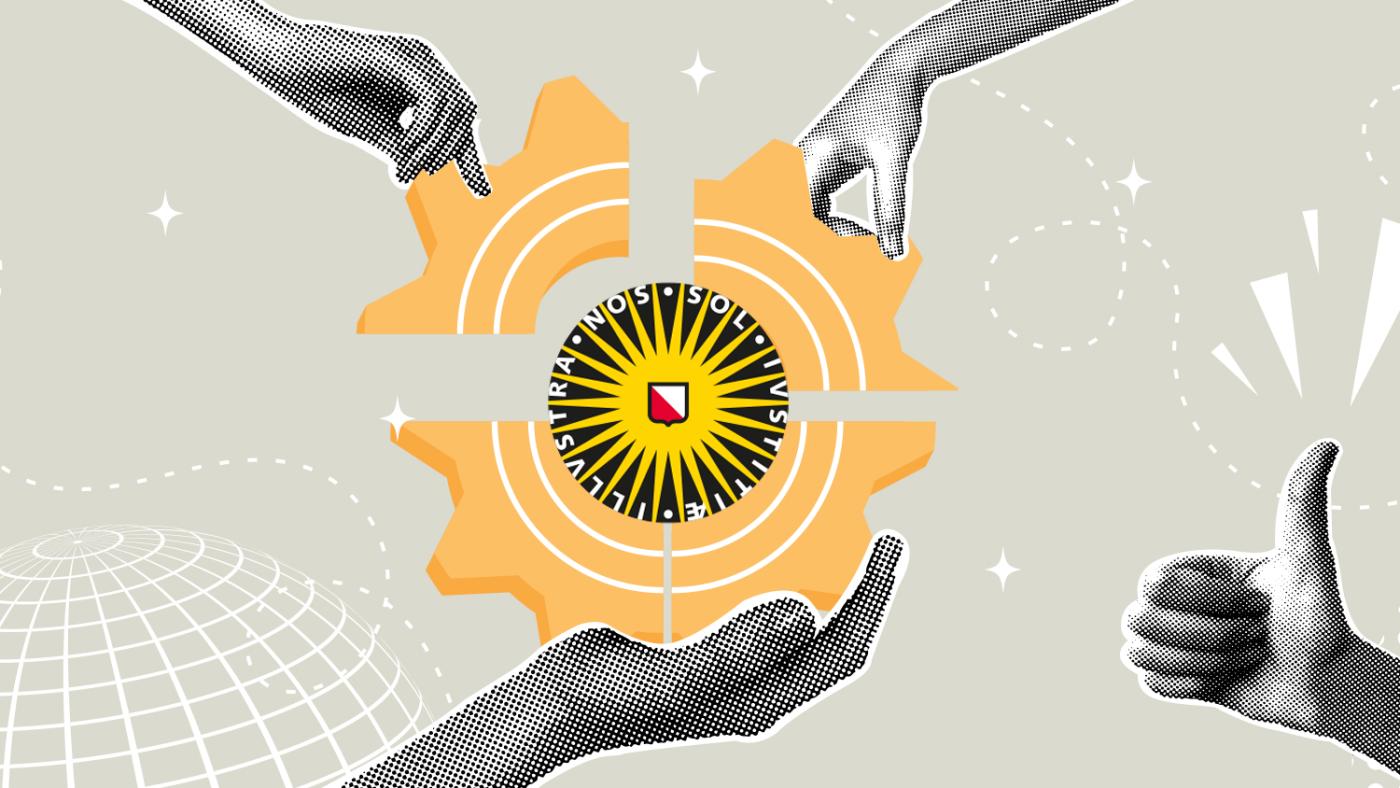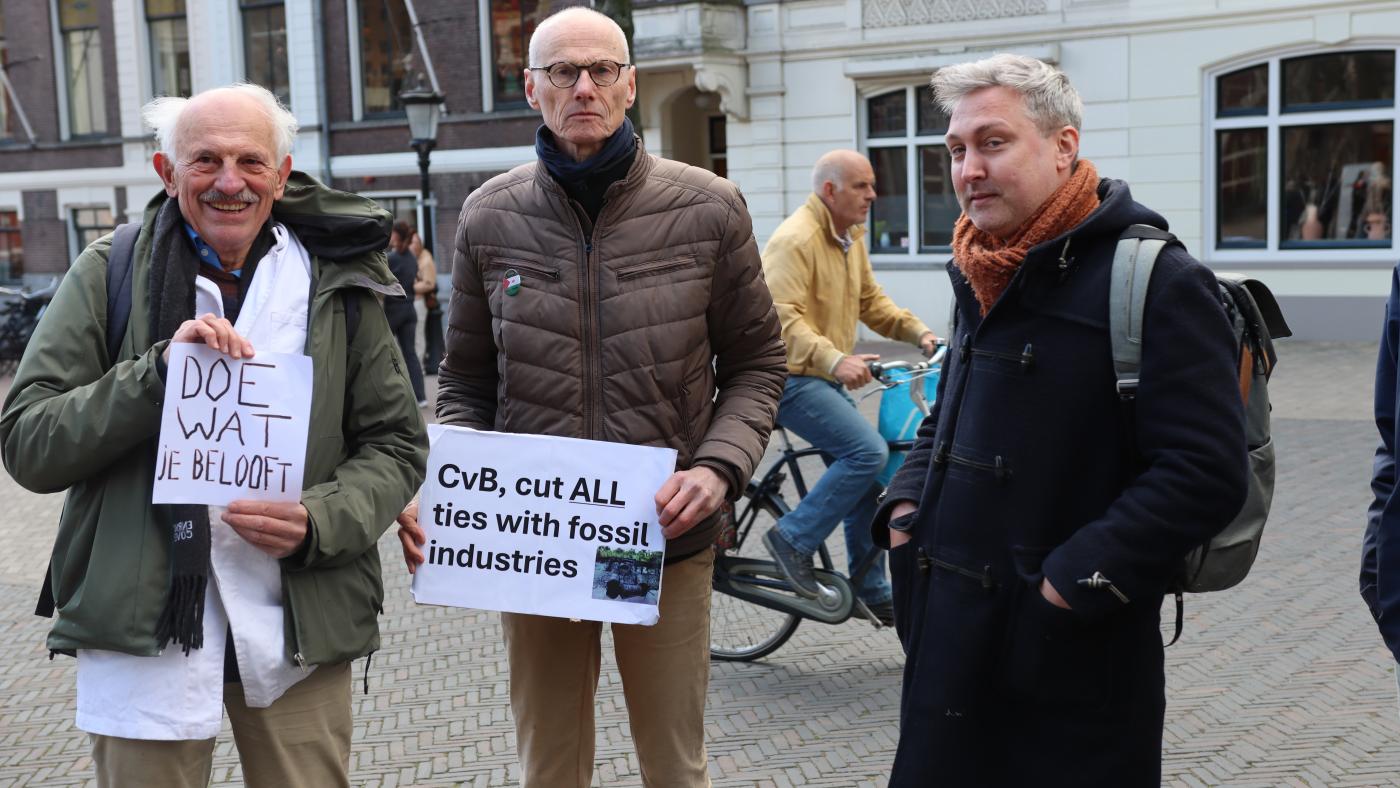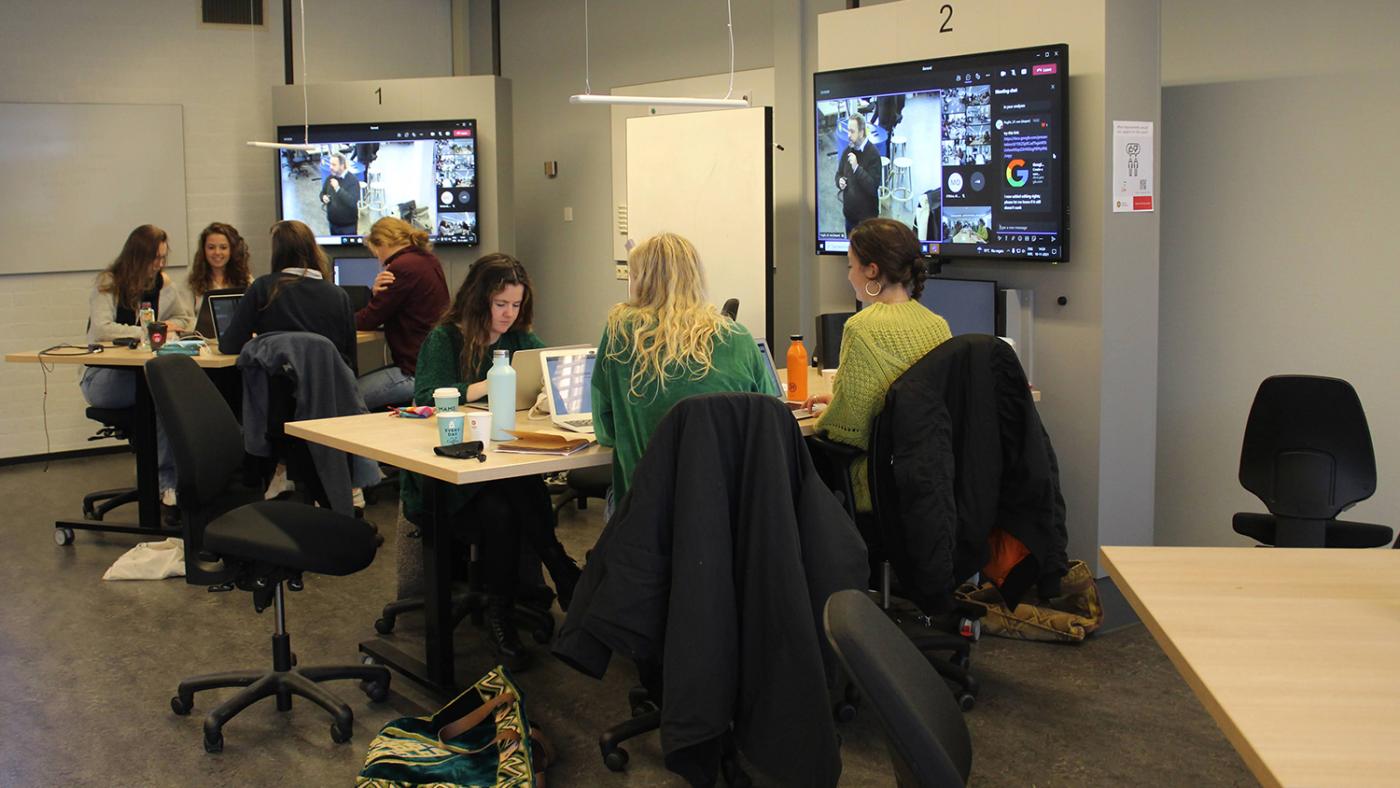Strategic Plan 2030
‘In turbulent times, universities must be catalysts for social change’

The university is at the heart of society. The fact that the world is facing rapid and sometimes threatening changes influences how the university looks at the future. This is one of the statements made in the introduction to the new Strategic Plan 2030, which has the same title as five years ago: Open Outlook, Open Attitude, Open Science.
Threats
The Strategic Plan outlines current issues and indicates how they affect the university. For example, several wars are currently underway, including one close to home. Nationalism, populism and right-wing extremism are gaining ground, which is also putting academic freedom under pressure. Democracy and the rule of law are also under pressure. All in all, doubts about the independence of universities are increasing in size.
Due to geopolitical developments, it is no longer possible to share all knowledge and information, such as research data, with everyone. Digitisation and artificial intelligence are influencing education and research. In addition, it is becoming less self-evident to be dependent on big tech companies.
Furthermore, the urgency of climate change is rising, while politicians seem to be washing their hands of it. The internationalisation of Dutch higher education must be curtailed, student numbers are falling, and funding is being cut back sharply. All these threats are putting people's well-being under pressure. Relationships are becoming more polarised, making it more difficult for society to achieve equality, security and inclusiveness.
The threats mentioned above constitute an additional motivation for the university to contribute to finding solutions to them. ‘We want to give direction to necessary transformations. We see the university as a catalyst for change.’
Broad approach to sustainability
This is also reflected in the choice of priorities. The climate crisis is a particularly urgent problem for which UU wants to take responsibility. Its approach to it is broad. First, UU supports scientists who seek technological solutions, but also helps those more interested in restoring ecological balance and investigating administrative options.
This chapter does not comment on whether or not to collaborate with the fossil fuel industry or other companies that do not endorse the Paris Agreement. The university has made statements on this subject in the past. Recently, the university's considerations on how to deal with partnerships with the fossil fuel industry generated a heated debate.
However, UU states in its Strategic Plan that sustainability will be a university-wide topic, which means that every student will be exposed to the topic, the campuses will be living labs for testing sustainable development, and business operations must be focused on creating a green campus.

UU's anniversary celebrations were marked by protests against the university's collaboration with the fossil fuel industry. Photo: DUB
Open Science dilemma
Another threat is the uncertainty in the international context and the pressure on democracy. Just as five and ten years ago, the university's primary mission is to make the world a better place. But now this mission is linked to the international situation.
Five years ago, the university chose the United Nations' Sustainable Development Goals as its guideline. The new plan identifies specific challenges, such as protecting democratic values, healthy growth, security of livelihood, migration and increasing the resilience of society.
In recent years, Utrecht University has positioned itself as a pioneer in the field of Open Science. The new strategic plan maintains this approach. In addition to Open Science, a new concept is being introduced: Open Education. This means that not only research, but also education, must be freely and widely accessible.
At the same time, the university recognises that limits must be set when it comes to sharing information. Due to geopolitical developments, it is no longer possible to release all data without restriction, given the risk of misuse by countries such as Russia and China. This is a dilemma.
Polarisation generates insecurity
In recent years, we have seen that tensions within the university community are growing when it comes to cooperation with the fossil fuel industry and Israel. The rise of right-wing parties within the university and the debate about internationalisation and diversity are also causing differences of opinion.
The new Strategic Plan focuses more on the university community than previous plans. It states that the community is so diverse ‘that it can sometimes be difficult to understand each other due to differences in personal, social, economic and cultural backgrounds’.
Polarisation can generate a feeling of insecurity. The plan refers to social safety as a prerequisite for an engaged community. Open discussions should provide the solution. “By continuing to talk, even when it is difficult, we can grow closer as a community.” People should feel free to speak out, discuss, agree, disagree and address issues.
Digital literacy
The influence of digitisation and the rise of artificial intelligence are two other important themes of the Strategic Plan 2030. In the document, the university indicates how this should be dealt with over the next few years.
The university recognises that AI plays a greater role in all aspects of students' personal, professional and social development, so education will have to anticipate this. Digital literacy, ethical awareness, self-regulation and personal leadership will be significant themes in education. Lecturers' roles may also change as a result of AI, although the university does not intend to replace lecturers with AI. Human interaction and personal guidance will remain important.
There is also a need for robust data management that ensures that information is handled securely. The starting point for data is the FAIR principle of research data being findable, accessible, interoperable and reusable by others. The university wants to investigate how it can become less dependent on big tech companies.

Students from the Master's programme Charm EU try to solve social challenges in class. Photo: Nina van der Bent/DUB
Education rooted in society
The recently updated Utrecht Education Model serves as an example for education. In this education model, students' training goes beyond obtaining a degree. Students should also be taught how they can contribute to a better world.
In all disciplines, students are looking more and more for interdisciplinarity. The document pays a lot of attention to the “graduate attributes” that form the common thread running through UU's education: qualification, socialisation and personal development. Students must also learn to look beyond the boundaries of their programmes and help solve complex problems in concrete terms.
Education is placing more emphasis on co-creation. This means students will be working alongside social partners to think about how to solve specific problems, looking for concrete applications. These direct contacts with society should also help to better prepare students for the labour market. In recent years, Utrecht University has not scored particularly well in the National Student Surveys in this area.
Strategic themes
While the choice of the four strategic themes was still a point of discussion five years ago, this plan presents them as self-evident. In terms of content, Dynamics & Youth, Institutions for Open Societies, Life Sciences and Pathways to Sustainability are and will remain the university's main research themes. The collaboration with the University Medical Centre Utrecht, Wageningen University and Eindhoven University of Technology is also undisputed.
Generally formulated ambitions
To draw up this Strategic Plan, a working group gathered input from staff, students, alumni and external parties in regular meetings. In addition, separate discussions were held with specific groups, such as internationals, young academics and university professors.
Unlike previous occasions, no special meetings were organised for this purpose. Five years ago, committees were set up to come up with concrete proposals for each theme. These included very specific proposals. The proposals are now broadly formulated ambitions.
This time, the faculties will not be tasked with drawing up their own Strategic Plans. They are expected to start executing the plan themselves, and the Executive Board will consult with them twice a year on the progress made. The board intends to monitor their progress using portfolio management.